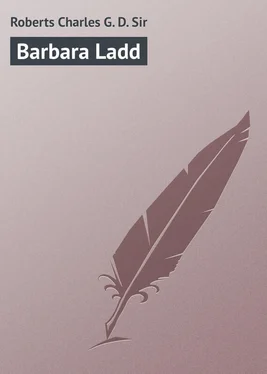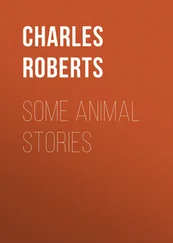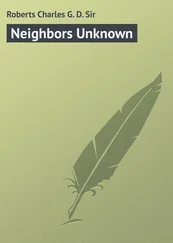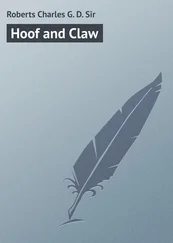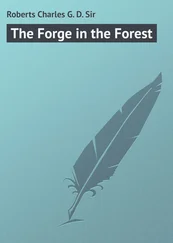Charles Roberts - Barbara Ladd
Здесь есть возможность читать онлайн «Charles Roberts - Barbara Ladd» — ознакомительный отрывок электронной книги совершенно бесплатно, а после прочтения отрывка купить полную версию. В некоторых случаях можно слушать аудио, скачать через торрент в формате fb2 и присутствует краткое содержание. ISBN: , Жанр: foreign_prose, foreign_language, на английском языке. Описание произведения, (предисловие) а так же отзывы посетителей доступны на портале библиотеки ЛибКат.
- Название:Barbara Ladd
- Автор:
- Жанр:
- Год:неизвестен
- ISBN:http://www.gutenberg.org/ebooks/34270
- Рейтинг книги:4 / 5. Голосов: 1
-
Избранное:Добавить в избранное
- Отзывы:
-
Ваша оценка:
- 80
- 1
- 2
- 3
- 4
- 5
Barbara Ladd: краткое содержание, описание и аннотация
Предлагаем к чтению аннотацию, описание, краткое содержание или предисловие (зависит от того, что написал сам автор книги «Barbara Ladd»). Если вы не нашли необходимую информацию о книге — напишите в комментариях, мы постараемся отыскать её.
Barbara Ladd — читать онлайн ознакомительный отрывок
Ниже представлен текст книги, разбитый по страницам. Система сохранения места последней прочитанной страницы, позволяет с удобством читать онлайн бесплатно книгу «Barbara Ladd», без необходимости каждый раз заново искать на чём Вы остановились. Поставьте закладку, и сможете в любой момент перейти на страницу, на которой закончили чтение.
Интервал:
Закладка:
"No, Debby dear, I can't stop one minute. I'm not coming ashore. I'm running away from Aunt Hitty, and I'm going down the river to Uncle Bob. I just stopped to say good-bye to you, you old dear, and to ask you to take this letter for me to Aunt Hitty. I didn't dare to leave it in my room, for fear she'd find it and know where I'd gone, and send after me before I'd got a good start. I don't like Aunt Hitty, you know, Debby, but she's been good to me in her way, and I don't want her to be worrying!" She held out a folded paper for the old dame to take; but she held it tentatively, as if she did not want to surrender it at once.
Knowing Barbara as no one else in the township of Second Westings knew her, old Debby betrayed neither surprise nor disapproval. She nodded several times, as if running away were the most reasonable, and indeed the most ordinary, thing in the world for a little girl of fourteen years to do when she found aunts and environments uncongenial. Old Debby's smile, at this moment, had just the right degree of sympathy. Had ever so little of amusement glimmered through its weather-beaten creases, she knew that the sensitive and wilful girl before her would have been off in a second with her venture all unexplained.
"I'd take it fer ye, my sweeting, ef I'd got to crawl on my knees all the way 'round the lake," the old dame answered promptly; but at the same time, scheming to prolong the interview, and knowing that if once Barbara started off again there would be no such thing as luring her back, she kept both hands clasped on top of her stick and made no move to accept the missive.
"Ain't ye goin' to read it to me?" she went on, coaxingly. "I'd give a sight to hear what ye're sayin' to yer Aunt Hitty."
Now this was just what Barbara wanted, in spite of her haste. She wanted to hear how her letter would sound. She wanted to try it on old Debby, in whom she felt sure of a eulogistic critic. Without a word she untied the yellow ribbon, opened the packet, and began to read, with a weighty impressiveness in her childish voice:
"MY DEAR AUNT HITTY: – This is to say farewell for ever, for I have run away. I do not think it would be good for me to live with you any longer, so I am going to Uncle Bob. He loves me, and does not think I am bad. And I think he needs me, too, because I understand him. I know I have often been bad, and have made you unhappy very often, Aunt Hitty. But I don't think you ever understand me – and I don't understand you – and so we cannot be happy together. But don't be worried about me, for I will be all right. And I thank you for all the trouble you have taken about me. I don't want any of my old clothes except what I have brought with me, so please give them to Mercy Chapman, because she is poor and just about my size, and always kind to animals, and I like her. I have taken your nice basket you got from the squaw last Saturday, to carry my kittens in; but I know you won't mind, because you offered to give it to me when I did not know I was going to need it. I have taken the canoe, too, but I want to pay for it, of course, Aunt Hitty. Please keep enough to get a new one, and paddles, out of the money you are taking care of for me, and send the rest right away to Uncle Bob, because I'll need some new frocks when I get to the city, and I don't know whether Uncle Bob has any money or not. Good-bye, Aunt Hitty, and I am so sorry that we could not understand each other.
"Your niece,
"BARBARA LADD."
She looked up, proud, but a little anxious, and eager for commendation. Old Debby rose to the circumstances.
"Law, how you kin write, Miss Barby," she said, with a nod and chuckle. "The parson nor Doctor Jim couldn't 'a' done no better. I reckon Aunt Hitty'll understand ye now, a sight better'n she's given to understand folks as don't jest think as she do. Give me the letter!"
Barbara's face flashed radiantly. With a sudden impulse she sprang up, skipped ashore, thrust the letter into the old woman's hand, and cried in a high key:
"Oh, I'm so hungry, Debby! I can't stop a minute, but do give me some breakfast, there's a dear. I was too excited to eat before I left. And do give my kittens a drop of milk. I've got nothing but cold meat for them to eat on the journey, poor babies!"
Without waiting for a reply, she skipped back to the canoe, grabbed up the covered basket, and flew up the path to the cottage; while the old woman limped after her with astonishing speed, chuckling and wheezing out a disjointed invitation. She followed Barbara into the cabin, shutting the door to keep out the puppy, who whined in an injured voice upon the stoop. Then, thinking of the kittens first, – and thereby showing her deep knowledge of the kittens' mistress, – she set down a bowl of milk in the middle of the floor; and Barbara, uncovering the basket, lovingly lifted out three plump, moon-faced little cats, a yellow-and-white, a black-and-white, and a gray-and-white. While the three, with happy tails erect, lapped at the milk, Barbara made haste to devour thick slices of brown bread and butter, spread to a luscious depth with moist, sweet-scented maple sugar. She had no time to talk. She sat on the edge of the big four-post bed, swinging her slim legs, and kicking her heels against the dingy, gay patchwork quilt whose ample folds hung to the floor. The hidden space under the bed was a place of piquant mystery to Barbara, containing, as it did, boxes on boxes of many-coloured rags, out of which, earlier in the season, old Debby would bring forth precious goose-eggs, duck-eggs, turkey-eggs, and the specially prized eggs of certain pet and prolific hens, gathered against the time of setting. While Barbara broke her fast, old Debby refrained from questions, having shrewdly grasped the whole situation. She knew that Mr. Robert Glenowen, Barbara's uncle, had lately come north on an errand which nobody seemed to understand, and had taken a house at Stratford. Of a nomadic spirit in her younger days, Debby had moved much here and there throughout her native Connecticut, and over the bordering counties of New York and Massachusetts; and she had not only a rough idea of the distance from Second Westings to Stratford, but a very vivid realisation of the perils of the journey which Barbara, in her innocence, had so confidently undertaken. Till she saw that the appetites of Barbara and the kittens were nearing satisfaction, she talked with a sort of casual enthusiasm of her luck with the chickens, the goslings, the young turkeys, and depicted the prowess of an old speckled hen which had engaged and defeated a marauding hawk. Then, when at last Barbara sprang up, bundled the satiated kittens into the basket, and turned to her for a fond and final good-bye, the crafty old dame broke into passionate farewells. She kissed the child, and even wept over her, till Barbara's self-centred exaltation was very near collapse.
" You love me, don't you, Debby dear?" she exclaimed, with a wistfulness in her voice, searching the old woman's face with her great, eager, strangely alien eyes. Barbara was one of those who colour the moods of others by their own, and who are therefore apt to be at fault in their interpretation of another's motives. This gave her, even in childhood, a strangeness, an aloneness of personality, which she, as well as those who loved her, could seldom break down. It was with a kind of heart-break that she now and again, for an instant, became dimly aware of this alien fibre in her temperament. It made her both misunderstanding and misunderstood.
"I can trust you, can't I?" she went on, leaning childishly for a moment upon the old woman's comfortable breast.
"Trust old Debby, my sweeting!" cried the old dame, in tones which carried conviction. "Ye hain't got no lovinger nor faithfuller friend alive than me. Don't ye never forgit that, Miss Barby."
Читать дальшеИнтервал:
Закладка:
Похожие книги на «Barbara Ladd»
Представляем Вашему вниманию похожие книги на «Barbara Ladd» списком для выбора. Мы отобрали схожую по названию и смыслу литературу в надежде предоставить читателям больше вариантов отыскать новые, интересные, ещё непрочитанные произведения.
Обсуждение, отзывы о книге «Barbara Ladd» и просто собственные мнения читателей. Оставьте ваши комментарии, напишите, что Вы думаете о произведении, его смысле или главных героях. Укажите что конкретно понравилось, а что нет, и почему Вы так считаете.
